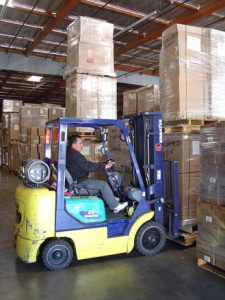Typically, workers’ compensation is known as an exclusive remedy. This means that if a worker is injured on the job or suffers from a work related illness, he or she must file a workers’ compensation claim if he or she is to be compensated for any loss suffered as a result of the workplace injury or work-related illness.
 This means that if you were injured on the job or suffered a work-related illness, you cannot also file a civil personal injury lawsuit, as workers’ compensation is your exclusive remedy. However, there are two exceptions to this, but they are limited exceptions. The first exception, which is rarely applicable, is if your employer engages in conduct that is so extreme and outrageous that justice provides for a means for an injured employee to sue his or her employer. However, in this case, the employer must not only be at fault, but must have really acted with a complete disregard to the safety of its workers.
This means that if you were injured on the job or suffered a work-related illness, you cannot also file a civil personal injury lawsuit, as workers’ compensation is your exclusive remedy. However, there are two exceptions to this, but they are limited exceptions. The first exception, which is rarely applicable, is if your employer engages in conduct that is so extreme and outrageous that justice provides for a means for an injured employee to sue his or her employer. However, in this case, the employer must not only be at fault, but must have really acted with a complete disregard to the safety of its workers.
The second exception is more common. This is when the injury was caused by a negligent third party. A third party is not your employer or a coworker, but someone who is not connected with your employer. A common example would be if a vendor came to the job site and injured a worker. Since the vendor does not work for your employer, an injured employer could sue him or her and also file a workers’ compensation claim, but that worker has to reimburse the employer for any benefits paid to avoid double recovery. This is a rather complicated issue about which you should speak with an experienced workers’ compensation attorney in Boston if the situation applies to your case.
In Vasquez v. American Cas. Co. of Reading, a worker was killed by a co-worker who was operating a forklift. The forklift is a vehicle covered by insurance, and the insurance policy did apply to those injured by the vehicle. In this case, it was not the forklift that hit him directly, but rather a steel beam being carried on the forklift.
The worker’s family recovered workers’ compensation and also recovered under his own vehicle’s underinsured motorist policy. An underinsured motorist (UM) policy is one that is designed to cover a vehicle owner if he or she is injured in an accident where the at-fault driver does not have enough liability insurance to cover the total extent of the loss. It should be noted that you do not have to be in your car at the time of the accident to use the UM policy.
In this case, the UM policy underwriter on the forklift denied the claim by the killed worker’s family, arguing that it was not liable since the vehicle was driven by a co-worker and not a third party, so workers’ compensation is the exclusive remedy. The court was not sure of the answer and certified the question to the state supreme court to rule on this issue. The court determined that the policy was not applicable, since he was killed by a co-worker and workers’ compensation was in fact the exclusive remedy.
If you or someone you love has been injured a Boston work accident, call for a free and confidential appointment at (617) 777-7777.
Additional Resources:
Vasquez v. American Cas. Co. of Reading, October 14, 2016, Supreme Court of New Mexico
More Blog Entries:
Parr v. Breeden – Supervisor Co-Workers Not Liable Under Workers’ Comp Exclusive Remedy, July 3, 2016, Boston Work Accident Lawyer Blog
 Massachusetts Workers Compensation Lawyers Blog
Massachusetts Workers Compensation Lawyers Blog

